
Arquivo para a ‘Recursos comuns’ Categoria
Narratives, wars and dangers
In one of Byung-Chul Han’s recent essays,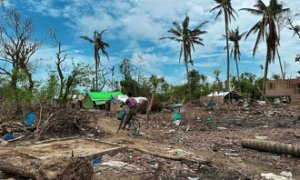 while the author remembers Hyppolyte de Villemessant, founder of the French newspaper Figaro and Walter Benjamin, essayist and philosopher who died in the 40s, the author does not fail to associate the modern narrative associated with new media, with storytelling called storyselling (product that sells).
while the author remembers Hyppolyte de Villemessant, founder of the French newspaper Figaro and Walter Benjamin, essayist and philosopher who died in the 40s, the author does not fail to associate the modern narrative associated with new media, with storytelling called storyselling (product that sells).
Thus, instead of provoking a reflection on the major problems of today, including the escalation of wars, the problem is old: “the reader of a modern newspaper jumps from one piece of news to another, instead of letting his gaze wander into the distance, and linger there. The long, slow and lingering look was lost” (Han, 2023, p. 17), that is, there is no reflection.
So it’s about creating a narrative favorable to this or that ideological vision, logic and humanity don’t matter, even in the face of tragedies we are more busy (not all of them fortunately) in creating a narrative to justify a certain position than to defend a principle. humanitarian, there is this or that war, but all of them kill innocent people, all of them, as Eduardo Galeano said, hide desires for power and exploitation over the nation to be dominated, but great empires have succumbed despite all the arrogance and genocides.
The resurgence of the war in Ukraine, the threats to the last stronghold of Palestinian refugees, the constant threats to Taiwan, in addition to incursions into Africa and now even South America, Venezuela is once again threatening Guyana with intense troop movements and provocations between the USA and Iran, warlike spirits ignite and even good but innocent people embark on these narratives, there is no other interest in wars: looting, deaths of innocent people and inhumanity.
There is no shortage of meetings between nations in Brazil, Europe and attempts to sensitize governments to the dangers of this war escalation around the world, but they come up against partial and partisan narratives, few minds are aware of the serious and civilizing danger of this escalation. , around the world, armaments are the only response that seems to reach the rulers, and so narratives of “heroic acts” of warlike events grow around the world that should shame those who invoke humanitarian principles, with the UN being the wars and environmental problems that have led starve more than 700 million people.
Even for a biblical or historical narration, where the intention is to build a “whole” narrative, there is a call for humanitarianism, when Cain kills his brother Abel, the divine question is “where is your brother?” (Genesis 4,9) and the narration suggested by Byung -Chul Han is that of the Egyptian king Psammenit who was captured by the Persian king Cambyses, and after the defeat makes the king humiliate when he sees his daughter turned into a slave and his son being taken to be executed (Han, pg. 21), however the Egyptian king only felt when he saw an elderly and frail servant among the prisoners and “hit his head with his fists and expressed deep sadness” (pg. 22), so the narration, says Han, “needs no explanation” (Han, pg. 22).
If we are capable of long, slow and lingering reflections, it is not difficult to understand the danger of the escalation of wars, of simple people like Psammenit’s service who suffer and die for issues that they barely understand, and that the narratives do not explain, they only try to justify the unjustifiable: death, jokes and lies.
As the philosopher Morin states, it takes resistance of the spirit, we are gradually losing the sense of love, hope and solidarity and if we read and investigate the news and facts of the wars we will see that there was nothing in them other than great genocides, robberies and In situations of hunger and misery, it is necessary to resist hatred and violence.
Han B.C. (2023) A crise da narração (The crisis of narration). Transl. Daniel Guilhermino. Brazil, Petrópolis, RJ: Vozes.
Renunciation, economy and joy
Byung-Chul theorizes that despite the difference between Derridá and Heidegger (see our previous post) there is a structural affinity in their vision of mourning, which is characterized by the renunciation of the subject’s autonomy in Derrida: “No matter how narcissistic our subjective speculation continues to be, , it can no longer close itself to this gaze, before which we ourselves show ourselves the moment we convert it into our mourning or we can give up on it [faire de lui notre dueil], mourning, making ourselves mourn for ourselves, I mean, I mourn the loss of our autonomy, for everything that made us the measure of ourselves” (Han, p. 430 citing Derridá’s text “Krafter der Trauer”, strengthening of pain), this That is, they both have in common a vision of renouncing the autonomy of the subject, the “I” of idealism.
between Derridá and Heidegger (see our previous post) there is a structural affinity in their vision of mourning, which is characterized by the renunciation of the subject’s autonomy in Derrida: “No matter how narcissistic our subjective speculation continues to be, , it can no longer close itself to this gaze, before which we ourselves show ourselves the moment we convert it into our mourning or we can give up on it [faire de lui notre dueil], mourning, making ourselves mourn for ourselves, I mean, I mourn the loss of our autonomy, for everything that made us the measure of ourselves” (Han, p. 430 citing Derridá’s text “Krafter der Trauer”, strengthening of pain), this That is, they both have in common a vision of renouncing the autonomy of the subject, the “I” of idealism.
Here the important thing is not to let mourning work (let us remember the concept already seen in the posts about “work mourning”) it is replaced in Derridá by a game of mourning: “however, the happier the joy, the purer the sadness that sleeps in it. The deeper the sadness, the more it calls us to joy…” (Han, pg. 430-431), but Heidegger’s mourning, explains Han, does not kill death, trying to kill it results in something even worse: “ wanting to resurrect, violently and actively surpassing the limit of death would only drag them (the gods) into a false and non-divine proximity and would bring death instead of our life” (Han, pg. 431-432 quoting Heidegger).
Heidegger explains that it is “not a symptom that can be eliminated by psychoeconomic accounting. He does not have a deficient trait that involves work (of mourning).
This “withdrawn” or “saved” for which Heidegger’s “holy and mourning” heart beats is not subject to economics, this “saved” cannot be spent or capitalized, it is therefore that which is and characterizes renunciation, Han does not exemplifies, but we can think of humanitarian aid in disasters and wars, as it will characterize the identity of renunciation and gratitude as conceivable outside of economics, using Heideggerian terms “grievously bear the need to renounce” and promises the “unthinkable donation”.
A profound and wise phrase by Heidegger says, renunciation is the “highest form of possession”, it seems contrary, but we only really have what we can give because otherwise it is a commodity of exchange, and even more so renunciation becomes gratitude and “ duty of gratitude”, this pain increases and becomes joy: “the deeper the sadness, the more the joy that rests in it calls us”. (pg. 433), but it does not even become sublimation, which forces us to “work”, as it is the “inhibition of all income” and the “awareness of the emptiness and poverty of the world”.
Praise of misery one might think, is not a praise of moderate and continuous joy, different from the euphoria and ecstasy that is followed by depression, “the lack of the divine brings about mourning, goes back to an obstinate forgetfulness of being, in which Heidegger inscribes the divine” (Han, p. 433-434), but it is certainly not yet the biblical divine, but surrounds it.
The reward and joy of the Divine inscribed in the being, is that which renounces and gives, but knows that there will be a reward of receiving a hundred times more, not in goods, but in joy.
Han, Byung-Chul (2023) Coração de Heidegger: sobre o conceito de tonalidade afetiva em Martin Heidegger (Heidegger’s heart: on the concept of affective tonality in Martin Heidegger). Transl. Rafael Rodrigues Garcia, Milton Camargo Mota. Brazil, Petrópolis: Vozes.
Plurality, polyphony and tonality
Although Byung Chul Han in his reading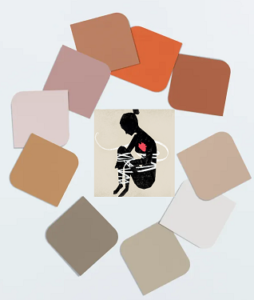 of Heidegger and his affective tonality, describes plural democracy only in passing, when commenting on “polyphony” that Derrida opposing “totality does not exclude tonality. The juxtaposition of notes would be equivalent to the monotony of a disturbed heart, which would certainly be distinct from the atonal heart” (Han, 2023, pg. 16).
of Heidegger and his affective tonality, describes plural democracy only in passing, when commenting on “polyphony” that Derrida opposing “totality does not exclude tonality. The juxtaposition of notes would be equivalent to the monotony of a disturbed heart, which would certainly be distinct from the atonal heart” (Han, 2023, pg. 16).
To better develop the question of the state and its plurality, Heidegger approaches the “art of living… limited where the world begins to be populated with the hearts of others, where we no longer find ourselves in proximity to the aesthetic” (page 17 ).
It will explore Hegel’s conflict of hearts that he intended to resolve dialectically and does not appear in Heidegger (pg. 18), his “poetics” is not identified “with the politics of the heart” (idem).
After the failure of the subject of Faustian pleasure (Hegel quotes Goethe’s Faust), Hegel, when opposing the particular with the universal, does not find himself again in the “universal order”, this immediate opening of the heart to the universal, the universalization of the heart makes self-consciousness “go crazy” and cause a head-on collision between the universal and the particular that splits consciousness (pg. 18).
Generating this “singularity of consciousness, which wants to be immediately universal” results in schizophrenia (pgs. 18-19), is a fundamental excerpt from Byung-Chul Han capable of explaining even the great wars and the global war moment.
She shows what happens to hearts with the “pulse of the heart” towards the universal, which turns into “the fury of a wild presumption”, postulates “the madness of the world order” (pg. 19), the effective heart is repressive , is effective by repressing other hearts.
The circumcision of the heart of the particular by the “spirit” (claimed by Hegel), suppresses the particular in favor of the universal, “knowing the law of the heart as the law of all hearts, and the consciousness of the Self as the recognized universal order” (Han quoting Hegel, pg.20).
Heidegger opposes the law of the house (oikos), of the domestic fire beyond the dialectical economy, it “must not step on the stage of speeches” (Han, pg. 21), this “dispute without war” (in Hegel’s view) does not bears no family resemblance to the conflict of speeches (pg. 21).
“Hegel’s heart, which in the third part of the Encyclopedia becomes the seat of sensations, lacks all objectivity and universality” (Han, pg. 22), in it Hegel’s “blind heart only knows how to express something “singularized, contingent, unilaterally subjective” … “it is a merely subjective reaction to external sensation” (pg. 22), and Han gives the antidote, calling it a gift.
The Being with a gift is the “singular par excellence, which, in its singularity, is solely the uniquely unifying one, before all number”, the impossibility of number nullifies the economy of exchange (pg. 25).
What must be taken back must be given as a gift, it is necessary to keep this gift away from the economy of exchange, to release it from the economic circle of exchange”, this is the principle of affect.
Han, B.C. (2023) Coração de Heidegger: sobre o conceito de tonalidade afetiva em Martin Heidegger (Heidegger’s heart: on the concept of affective tonality in Martin Heidegger). Transl.Rafael Rodrigues Garcia, Milton Camargo Mota. Brazil, Petrópolis: Vozes.
Natural tragedy in southern Brazil
We follow, generally on Mondays, the serious civilizational crisis that is nothing more than a mitigated war between the great powers, always with a risk of becoming a total war, three great empires are there in conflict: the American, the Chinese and the Russian.
serious civilizational crisis that is nothing more than a mitigated war between the great powers, always with a risk of becoming a total war, three great empires are there in conflict: the American, the Chinese and the Russian.
However, the natural tragedy with intense rains in southern Brazil gives us a solid warning.
The data as of yesterday afternoon (05/05) are sad and alarming: 334 municipalities affected, 16,609 people in shelters, almost 90,000 homeless, 780,725 people affected, 155 injured, 103 missing and 75 confirmed deaths (6 more investigated if under the action of rain), in addition, in 839 thousand properties there is no water and 421 thousand homes are without electricity, there are 113 roadblocks.
Businesspeople, several humanitarian organizations, and most media outlets are campaigning for funds and relief for that population, also the governor, mayors and politicians from the federal government are committed to mobilizing funds for relief, there were those who compared this emergency aid as typical of a war.
Social and sporting events were postponed, although there were million-dollar shows in the country where they didn’t even have the sensitivity to refer to the natural disaster (I won’t publicize it), but the Brazilian people are supportive, they are moved, they cry along with the gauchos and they mobilizes.
There is still rain these days and the rivers continue to rise, the tragedy could be even greater, and then the reconstruction process will not be simple, we have a chance to be more united and supportive and not live in an eternal polarization of hatred and misunderstanding.
Fortunately, the country’s bodies are supportive and I hope they remain, it would also be good to perhaps get a note from sectors of the judiciary, for example, the OAB or state courts.
Awakening the spirit of solidarity at this time can represent a good awareness of our debts to society and to the people who are always in difficulties. Those who live close to the humble population perceive a serious moment.
All humanitarian support to the people of Rio Grande do Sul, they will be comforted if they feel all our support.
The world-man and the provincial
It is possible for someone to have a feeling capable of embracing humanity in its differences and contradictions, if they are capable of embracing the illnesses and wounds of others.
of embracing humanity in its differences and contradictions, if they are capable of embracing the illnesses and wounds of others.
He who is capable of understanding the world as a whole, understanding the complexity of different cultures, feelings and cultural systems, is capable of embracing and sympathizing with the pains of humanity, this is a man-of-the-world.
The provincial is not able to see beyond his village, one can even praise the spirit of apparent peace and delight of those who live in a small world, or in a bubble, but it is from there that the worst prejudices, the worst xenophobia and the inability to see beyond.
If Honoré de Balzac said: in the provinces we live in public, now in the global village we all live in public, each citizen carries a camera that can record everything.
To be a sign of hope in the world, in an increasingly conflictive time, it is necessary to go beyond our own concepts (which are pre-concepts) and understand that the logic of social life has been changing since we started living in a global village, culture enters through TV, radio and social media, and there is no going back, they are here to stay.
The sins and misunderstandings that they gave rise to are not new, they have just become more visible now and we are faced with a society that has difficulty seeing others with respect and understanding.
Those who want freedom are quick to limit it, those who proclaim love do not want the same love outside their bubbles, we do not resolve our difficulties and wounds and at the same time we increase the climate of misunderstanding in humanity.
The great contemporary empires work culturally on these difficulties, hatred of those who are different, intolerance to the culture of others, and thus we feed in microcosm the policy of a growing warmongering that threatens to take over all of humanity.
It has never been so urgent to love one another, there are even those who proclaim it, but for their small village or their provincial bubble.
Polycrisis and hope
Rumors of confrontation between Russia and NATO have worsened in the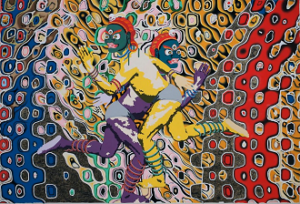 last few hours, however, the hope for peace and the resistance of the Spirit, as portrayed by Edgar Morin, remain alive.
last few hours, however, the hope for peace and the resistance of the Spirit, as portrayed by Edgar Morin, remain alive.
In addition to Morin’s polycrisis (just as poly is multiple and is also city polis, Krisis also has the meaning of decision-making power) professor Adam Tooze (Financial Times article), of history at Yale University (USA) expanded and updated: pandemics, droughts, floods, mega storms, forest fires, war in Ukraine (and now in the Gaza strip0, energy and food prices, etc.
In his reasoning, without directly pointing out the professor “discovers” the complexity and a new transdisciplinary vision of the “whole”: “A problem becomes a crisis when it challenges our ability to deal with it and, thus, threatens our identity. In a multiplicity of crises, the shocks are differentiated, but they interact in such a way that the whole is more ambiguous than the sum of its parts”, he states in the article. (in the image the painting by Tsherin Sherpa (Nepal), Lost Spirits, 2014.)
Morin said: “Linked to the domain of calculation in an increasingly technocratic world, the progress of knowledge is incapable of conceiving the complexity of reality and in particular human realities. The result is a return to dogmatism and fanaticism, and a crisis of morality while hatred and idolatries spread” (Newspaper La Repubblica, interview), however, beyond the polycrisis there are signs of hope.
While the Resistance of the Spirit invokes an understanding of the gravity and issues surrounding the current crisis, Hope (capitalized here) means this Spirit put into action and thus the achievement of a countercurrent spirituality that invokes values of change.
Those who immerse themselves in this Hope in different ways, are always willing to embrace the problems that everyone runs away from, to embrace the fragments of a polarized world, and to remember what unites as opposed to what disunites and polarizes, fortunately there are these spirits and I would call them Spirits of Resistance through Hope.
Go to the World and Bring the Good News, it cannot just be a biblical key, it is Living Hope.
Declared war and dangers
After Russia openly declared that it is at war with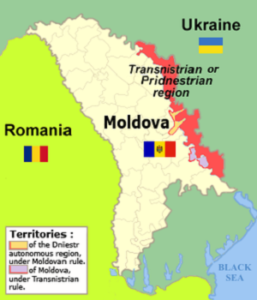 Ukraine in a week of heavy missile attacks on Kiev, including using Polish airspace, which generated tension, Ukraine responded with another major attack on Crimea and oil refineries.
Ukraine in a week of heavy missile attacks on Kiev, including using Polish airspace, which generated tension, Ukraine responded with another major attack on Crimea and oil refineries.
The West was on alert because the price of oil is expected to rise, and tension with NATO and Europe is already at high levels, statements by Putin and Macron with provocations from both sides, the placement of Russian troops on the Finnish border, and an Islamic State attack on a concert hall in Moscow.
From the beginning, the climate of tension has been at its highest this week of Holy Week, there will be no shortage of false prophets and hate mongers to make the situation worse, as Eduardo Galeano said about war, what the hatred of war did not do to the complete media, There have always been cold analysts who think of war as politics since Sun Tzu on the art of war, until Carl von Clausewitz was resurrected to justify the unjustifiable “art” of War.
The small autonomous territory of Transnistria (image) was shaken by the downing of a military helicopter, is within Moldova and governed by pro-Russian forces and is a cause of fear for Moldova, which is a member of NATO.
On the other dangerous front, among the many wars across the planet is the crisis in Palestine, it is another war of strong polarization, where the solution to the crisis seems distant, with increasing hatred from both sides and which could spread throughout the Middle East. .
In addition to the oil problem, the dangerous increase in maritime circulation of grains and industrialized products could generate a supply crisis and affect the problem of hunger, which is already common in many areas of the planet.
This is not an apocalyptic or prophetic vision, if it exists it is for a few and the majority are charlatans and speculators, but the civilizational crisis already has a very visible horizon.
Edgar Morin and other calm and common-sense analysts call for “resistance of the spirit”, not allowing oneself to be contaminated by this climate of hatred, violence and terror that plagues almost all four corners of the planet.
Keep your soul and heart pure and a strong spirit that faces the storms.
Truth and good works
There is no ontological truth where the unveiling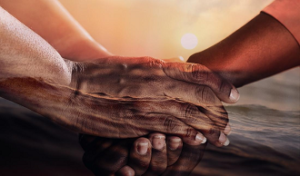 of being does not occur, and this depends on its deeper realization in contact with its essence and must bear fruit for life, for personal and social well-being and for those who believe for an eternity.
of being does not occur, and this depends on its deeper realization in contact with its essence and must bear fruit for life, for personal and social well-being and for those who believe for an eternity.
Sophists in ancient times created truths that could even be logical, but the objective was to gain power and benefit from those who had wealth and influence, and this has not been eliminated from everyday life until today, a large part of politics is the negotiation of public goods, fraud and for this they use non-truth, and this is not the monopoly of one group.
There is no way to maintain this logic without authoritarianism, the restriction of freedom and silencing the voices of those who suffer from greed for power and wealth, a large part of the current crisis comes from these values, even if they blame the media, they are also under control of these powers.
The media follow the ontic logic in the ontological difference, we briefly develop this issue of the way Heidegger and other followers of the different ontological currents see it, in the scope of interpretation and dialogue the logic cannot be ontic, it must follow the ontological truth that follows from fusion of horizons in the hermeneutic circle (see previous post).
Dualism and polarization follow the ontic truth, blaming the media that do nothing that they do not have under control in some way, which could even be algorithms, man himself, thus the dual ontic logic used is instrumental and in a certain way sophistical because it aims the power.
On Sunday, Holy Week begins for Christians, the ontological truth that was manifested as being in the person of Jesus had to be destroyed by the discourse of power, even the religious power of the time that could not believe that truth is the logic of Being and man, when he manifested his good works, almost always confronted power.
It is necessary to go against the current to reverse the logic of ease, of easy money through corruption, of power for power’s sake and of disservice to society.
Perspective of war and intoxication of the spirit
The tone and actions of a non-stop war are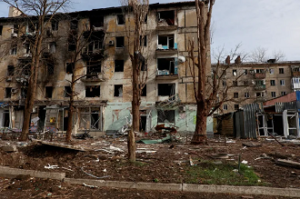 expanding, there are few nations and voices that are not under what the century-old philosopher Edgar Morin calls “collective intoxication”, and calls for there to be resistance capable of reacting to all the lies spread .
expanding, there are few nations and voices that are not under what the century-old philosopher Edgar Morin calls “collective intoxication”, and calls for there to be resistance capable of reacting to all the lies spread .
The commander of NATO forces, Chris Cavoli, announced an army of 90 thousand men, and an exercise called Steadfast Defender 2024, which should take place in May, with 50 ships, from aircraft carriers to destroyers, 80 fighters, helicopters and drones participating. and more than 1,100 combat vehicles, including 133 tanks and 533 infantry vehicles.
Russia misleads and says it would not invade Latvia and Poland, it took the city of Avdviika (photo) once and for all, one of the strategic fronts and where the war is most violent, Zelensky minimizes the loss by stating that he retreated to “save lives”, however the war remains bloody.
In an interview this Sunday (18/02) Putin says that Ukraine “is a matter of life and death” for the country, the death of opponent Navalny had repercussions throughout the world and will be a watershed for those who clearly support a regime warlike and authoritarian.
In the Gaza strip, the city of Rafah with millions of Palestinian refugees remains under Israeli threat, a hospital was invaded because there was news that “hostages were there”, but they were not found, only weapons and with the invasion patients in the ICU died.
There are international calls for Israel not to put civilians at risk, the majority of whom are taking refuge in Rafah, and Egypt has built a huge wall so that they cannot flee to Egypt and this puts thousands of women, children and other civilians at risk. who are there and have nowhere to escape.
Negotiations become more difficult with each Israeli action and the involvement of Iran and other Arab countries becomes more inevitable every day, it will be on this front that a possible 3rd. war will occur, the resistance of the spirit claimed by the century-old philosopher and educator Edgar Morin must fight against fanaticism and hatred that only spread death and war.
In a previous interview published in the Italian newspaper La Reppublica, Morin had said: “all war embodies Manichaeism, unilateral propaganda, war hysteria, espionage, lies, the preparation of increasingly deadly weapons, errors and illusions, unexpected events and surprises”, it takes a resistance of the Spirit for Peace.
Hypocrisy and power
In the analysis of political and ideological currents,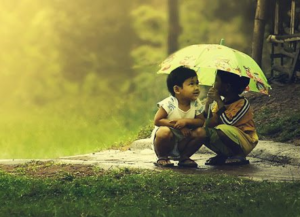 the notion and problem of hypocrisy is neglected, so it is possible to defend democracy by defending autocratic attitudes, by combating corruption, to justify elements of active and passive corruption, in fact, the active one which is the fact of offering illegal compensation (and it is not said what is illegal) and passive is when a public official receives undue compensation (when possible) from third parties.
the notion and problem of hypocrisy is neglected, so it is possible to defend democracy by defending autocratic attitudes, by combating corruption, to justify elements of active and passive corruption, in fact, the active one which is the fact of offering illegal compensation (and it is not said what is illegal) and passive is when a public official receives undue compensation (when possible) from third parties.
The term hypocrisy in ancient Greek (hypocritás) is similar to the current one, it is when a social actor intentionally acts in a simulated way, in acts or words, that hide how he thinks or how he actually acts, the rule today is to say the opposite to confuse public opinion.
As a term used by contemporary authors, I remember Machiavelli, as critics of political reason, and Foucault, who sees it as a central element of power relations, although his analysis moves to the psychological field.
Byung Chul-Han’s psychopolitics moves to the media field, the author believes that the power of digital media facilitates this type of relationship, although he does not directly call it hypocrisy, but gives an interesting recipe in his book “What is power”, “The modern loss of faith, which does not only concern God and the beyond, but reality itself, makes human life radically transitory”, so there is nothing perennial, since everything changes.
The basis of modern hypocrisy is to induce man to believe in a life of ease, what Byung Chul-Han calls an excess of positivity, pain and sacrifice have been abolished, “We forget that pain purifies. The culture of enjoyment lacks the possibility of catharsis. Thus, we suffocate it with the residues [Schlacken] of positivity, which accumulate beneath the surface of the tanning culture.”
This makes man happier, the answer is the opposite of what society promises, depression, bipolarity and boredom are contemporary diseases, “Depression is the illness of a society that suffers under an excess of positivity”.
Men and women, freed from this society of performance, exercise, and despiritualized asceticism, without suspicious and persecutory attitudes, become more affable: “Ordinary men and women, given the opportunity for a happy life, will become more gentle and less persecutory and inclined to view others with suspicion.”
It is possible to reestablish mutual trust, healthy relationships, empathy and fraternity, making society healthier and less conflictual.
Han, Byung-Chul. (2018) What is power?. NY; Wiley.

